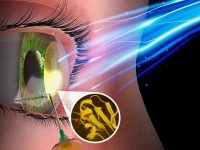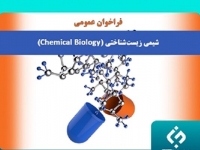
According to the news site Yasyad News, citing New Atlas, the thinning of the cornea is caused by bacterial infections of diseases such as keratoconus, and if neglected, it may lead to blindness. Currently, the best treatment for a thinning cornea is to replace it with a healthy specimen taken from a cadaver. Unfortunately, there is a shortage of corneal donors worldwide. This means that only a small number of people can use a donated cornea. In addition, corneal transplant surgery is invasive and there is a possibility of problems after the operation. In this regard, a group of researchers from the University of Ottawa, led by Dr. Emilio Alarcán, have invented a corneal thickening biomaterial. The key elements of this substance are short peptides
(chains of amino acids) and natural polymers called glycosaminoglycans. The process of making it is simple. With the help of surgery, a small pocket is created in the cornea and then the material is injected into it. When the injectable material is exposed to low-energy blue light pulses, it turns into a three-dimensional structure like corneal tissue within a few minutes and then becomes transparent. The technology has so far been tested on live mice, which have not experienced any complications, and has also been demonstrated on pig corneas. Testing on larger animals is needed next, after which human trials may begin.

